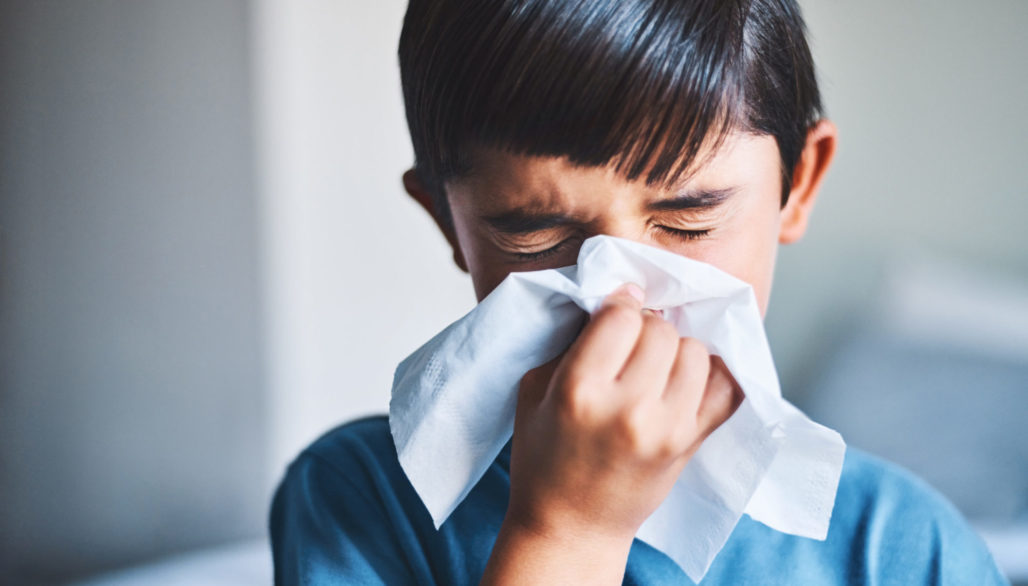Spring has sprung, and with it, so have seasonal allergies — with an early arrival at that. Between higher-than-average rainfall and ultra-active blooms of plants and wildflowers, this season is already kicking sniffles, itchy eyes and scratchy throats into high gear for many kids, says Akilah Jefferson, M.D., M.Sc., an allergist within Rady Children’s Specialists of San Diego’s Allergy & Immunology Program.
We’re also still on the tail end of cold and flu season, and sometimes, it can be tough to tell the difference between a virus or sinus infection and a bout of allergies. So, how can you know what’s ailing your kids? With allergies, an itchy, runny nose and sneezing are the most common symptoms, and generally come with clear nasal discharge, states Dr. Jefferson. Watery or irritated eyes are also fairly typical, whereas fevers are rare. Conversely, fevers occur frequently with the flu or a sinus infection, and sometimes with more severe colds. Sinus infections also involve “sinus pressure and pain, lots of really discolored mucus, and feeling a lot more tired,” Dr. Jefferson says. Sore throat? Could be allergies, but cold or flu is the more likely culprit.
When it comes to treating allergies, “a lot of it is quality of life, and a lot of it is preventing things like sinus infections if you have consistent inflammation in your nose,” Dr. Jefferson says. To tackle symptoms in kids, she recommends over-the-counter (OTC) treatments — oral antihistamines; intranasal steroids, which decrease mucus and inflammation and support easier breathing; or a combination of the two — as first-line solutions. When trying an oral antihistamine for the first time, Dr. Jefferson suggests testing it out on the weekend to see how your child responds. “Any oral antihistamine has the potential to cause drowsiness. There are some that say ‘non-drowsy,’ but it’s not 100 percent true,” she says.
If OTC options don’t work well for your child after a few weeks of consistent use, it may be time to see your child’s pediatrician or an allergy specialist. After identifying what allergens affect your child, Dr. Jefferson notes that physicians can “prescribe other, more targeted medications, including things like allergy shots for really severe symptoms.” This is particularly true if the source of your child’s allergies departs from the most common — “dust mites, dogs, cats, and lots and lots of pollen.” You can also help prevent or diminish allergy symptoms by limiting your child’s exposure, closing windows at home and while driving, using air purifiers, and encouraging kids to change clothes after spending time outside.
Here’s to a springtime filled with sun and fun … and not sneezes!
